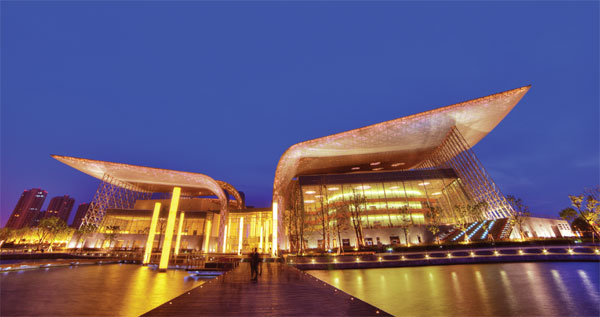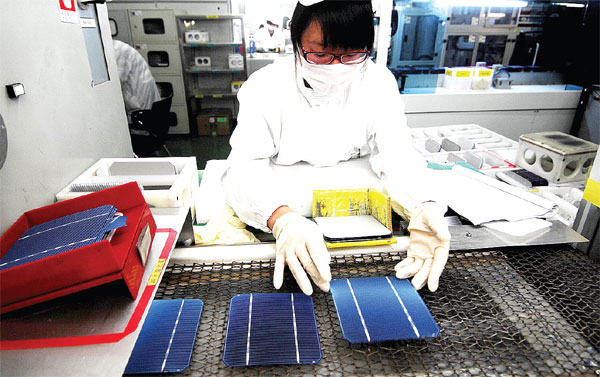Buying university ideas and solutions becoming a trend
Updated: 2014-09-14
Having exhausted its cheap labor and resources, which boosted the city's double-digit growth for nearly 30 years, Wuxi faced pressing needs of innovating its industrial technologies.
Wuxi has turned to "foreign brains". The government vowed to invite at least 30 leading engineers to help its industries by 2012, and meted out one of the most generous assistance programs in China to help innovative people industrialize their ideas after 2008.
Yet when the government's support goes to extremes, its support becomes interference that distorts market relations. Emerging industries soon face overcapacity.
 |
|
Wuxi's newly-built opera house. |
 |
|
Modern industry: making solar power panels. |
Wuxi Suntech Power Holdings, once one of the largest photovoltaic enterprises in China, rose to prominence and then went bankrupt within several years thanks to the government's preferential policies.
"We learned our lesson and now place more emphasis on the sustainable 'industrialization' of their ideas rather than their education background and titles," said Xu Chongyuan, deputy director of the city's science and technology bureau.
"The research institutes set up by universities in Wuxi make a bigger contribution to local industries than the individual programs supported by the government."
The Wuxi government started cooperating in 2011 with the Massachusetts Institute of Technology, making Wuxi the first city partner of MIT in China, as Wuxi made an effort to boost industrialization.
Chinese universities with strong experience in machinery, new materials and telecommunication are also potential partners in the eyes of Xu and her colleagues.
Tel:0510-81178873
E-mail:haiyulu@163.com


